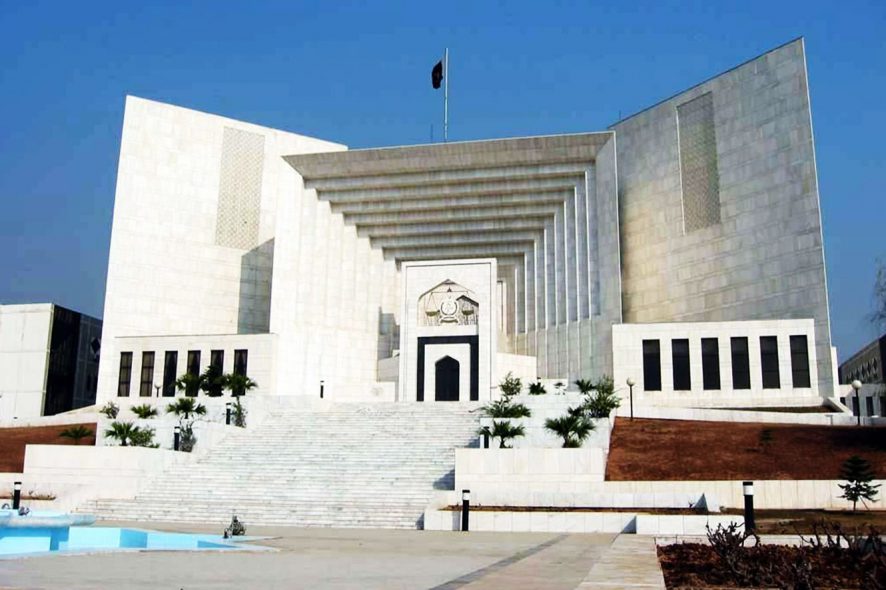Supreme Court of Pakistan: A Division Bench of Asif Saeed Khan Khosa, C.J. and Syed Mansoor Ali Shah, J. in the current order consolidated all the relevant precedents and the best practices pertaining to the Test Identification Parade so as to remove confusions regarding their legal position in future.
The case at hand pertained to an alleged abduction for ransom and murder and admittedly the case depended upon some pieces of circumstantial evidence. The appellant herein was convicted and sentenced for offences under Sections 302(b) and 347 read with Section 34 of the Pakistan Penal Code and Section 7(a) of the Anti-Terrorism Act, 1997 (the Act). He was sentenced to death by the trial court. Aggrieved thereby, the appellant challenged his conviction and sentences before the High Court through an appeal which was partly allowed. The convictions and sentences of the appellant for the offences under Section 347 of PPC and Section 7(a) of the Act were set aside but his conviction for the offence under Section 302(b) PPC was upheld. The High Court reduced his sentence of death for the offence of murder to imprisonment for life. Leave to appeal was granted in this case in order to reappraise the evidence and the Supreme Court exercised this in the current case.
The Supreme Court while reappraising the evidences observed that prosecution had failed to prove its case beyond a reasonable doubt. But the Court doubted the competence and capability of the Special Judicial Magistrate appearing before the Trial Court such that he disregarded the law declared by the Court in its precedents and made a very important piece of evidence reduced in worth due to which the prosecution had to suffer irretrievably. During the Test Identification Parade, he conducted more than one accused in one go which the Court observed was against law.
The Court relied on the precedents in the cases of Lal Pasand v. State, PLD 1981 SC 142, Imran Ashraf v. State, 2001 SCMR 424, Ziaullah v. State, 2008 SCMR 1210, Bacha Zeb v. State, 2010 SCMR 1189, Shafqat Mehmood v. State, 2011 SCMR 537, Gulfam v. State, 2017 SCMR 1189, Hakeem v. State, 2017 SCMR 1546 and Kamal Din v. State, 2018 SCMR 577, and held that identification of many accused persons in one line in one go during a test identification parade was improper. It observed, “it has been clarified by this Court on a number of occasions that every accused person is to be put to a separate test identification parade.”
The Court also pointed that, “a test identification parade and correct pointing out of an accused person by an eyewitness therein is not a substantive piece of evidence and failure to hold a test identification parade is not always fatal to the prosecution’s case and a reference in this respect may be made to the cases of Muhammad Akram Rahi v. State, 2011 SCMR 87 and Ghazanfar Ali v State, 2012 SCMR 215.”
Thus, all the laws and practices regarding the Test Identification Parade were brought together by the Court in this order so as to remove any confusion regarding the same. The Court also held that henceforth serious steps would be taken in case of non-compliance or disregard of the requirements and safeguards mentioned.[Asfand Yar Khan v. State, 2019 SCC OnLine Pak SC 11, decided on 22-02-2019]






